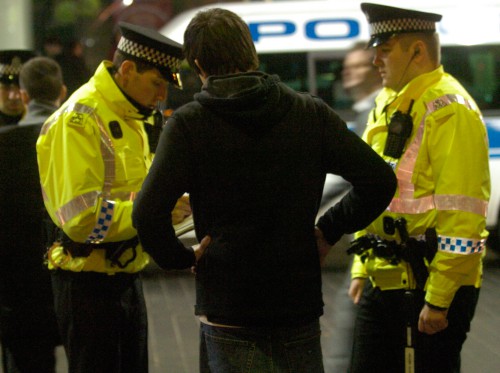
And therein lies one of the key criticisms of Police Scotland; the perception that since its inception, policing priorities are less local and police officers are less visible.
As an organisation, Police Scotland have had a challenging couple of years. Not only have they been tasked with making savings of £1.1 billion by 2026, but there have also been a number of high-profile controversies.
From the recent criticism of the Scottish Police Authority to the disproportionate use of stop and search, Police Scotland have faced increased scrutiny by the public, the press and those of us who research with the police. Furthermore, centralising policing services under a single force has undoubtedly led to the perception that local rural policing has been neglected in the overall policing mix.
One of the key challenges for Police Scotland has been balancing the national and the local in terms of police priorities. There is a real tension between the national standardisation of police protocol, including the development of national directorates such as police custody, and the maintenance of local policing with local priorities and associated idiosyncrasies.
Police Scotland has been beneficial in supporting intelligence, in rolling out good practice and in ensuring communities in Scotland have, at least on paper, an equal access to specialist policing services. Nevertheless, a national force has inevitably led to the perception that there has been a reduction of local, neighbourhood police officers dealing with local policing priorities.

Acutely aware of these perceptions, Police Scotland has recently consulted on its new strategy 2026, which focuses on inclusion, prevention, response, collaborative working, accountability, adaptability and, importantly, localism. My research suggests that there is a lot of existing good police practice in remote rural communities which could be adopted at a national level and which could contribute towards these strategic aims. To put it another way, rural police officers tend to be experts at working in an adaptable, inclusive and collaborative way, focusing on the local needs of a geographically dispersed community because this is their only option.
This is for a number of reasons. Firstly, the large geographic area involved in rural policing beats mean that officers often have little choice other than to be adaptable because back-up is a long-distance away and transporting detainees to the nearest police cells can take hours. Secondly, many rural police officers live and work in the community that they police, which means they often have a rooted knowledge and understanding of the pertinent issues. This has associated challenges, but it can facilitate collaborative and inclusive policing more readily than in larger urban environments. Thirdly, this knowledge can enable different policing methods to be used, whereby community solutions are sought to deal with low-key crime and disorder in a more inclusive manner than in urban locations. This can help the police develop trust and accountability more readily with community members and allow officers to be more visible.
These deep police-community connections are increasingly important for our violent and disturbing world. With strategy 2026, there is a unique opportunity to recognise excellence in rural policing and for rural police officers to begin to set the national community policing agenda and standards. Not only will this begin to (re)connect some of those communities who feel that the national police force has centralised and moved local rural policing away, but it should also allow greater links to be developed between the local and the national policing agendas. Despite perceptions that rural communities are safer, global security - both online and physical - are as applicable in rural Scotland as they are in the centre of Glasgow. The London bombers of 21 July 2005, for example, had earlier gone on a team-building exercise in rural Cumbria.
By using existing good rural community policing practice to support national policing priorities, the local and the national are less likely to be considered discrete policing entities. This in turn will help facilitate inclusion, collaborative working, accountability, adaptability and localism and go some way to shaping the national police force towards local priorities.
This article originally appeared in The Scotsman newspaper